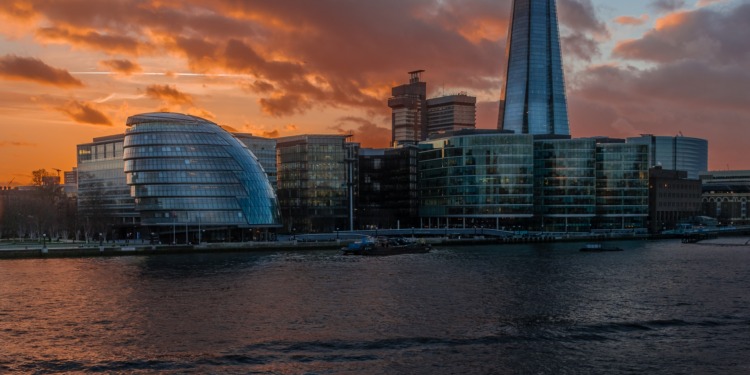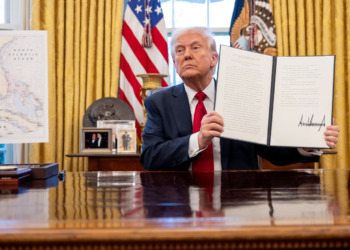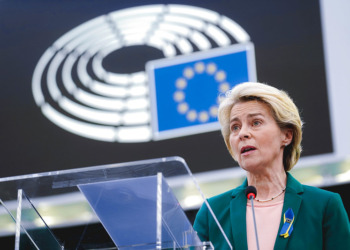London’s mayor, Sadiq Khan, is facing a legal challenge from five Conservative-led councils at the High Court over his plan to extend the Ultra-Low Emission Zone (ULEZ). The councils argue that the mayor lacks the legal authority to implement the extension, while Khan’s team maintains the scheme’s legality and its potential to improve air quality.
The expansion of the ULEZ, which currently covers the area between the North and South Circular roads, aims to roughly triple its size by including Buckinghamshire, Hertfordshire, Essex, Surrey, and Kent. However, the councils’ barrister, Craig Howell Williams KC, contends that the mayor’s proposal seeks to create a “master charging scheme” for London, exceeding his legal powers.
Today, along with @LBofBexley @LBofBromley @harrow_council @SurreyCouncil we begin legal proceedings in our High Court battle to stop expansion of the ULEZ to outer London.
The scheme is the wrong way to address air quality issues in the outer boroughs
https://t.co/rZCgstcFVa pic.twitter.com/pJyBtWuI8f
— Hillingdon Council (@Hillingdon) July 4, 2023
One of the key points raised by the councils is that only 106 cameras were used to determine compliance rates in outer London, based on which claims were made that 90% of cars already complied with ULEZ standards. This limited data was not adequately disclosed during the consultation, potentially hindering meaningful responses from the public.
Transport for London (TfL) submitted information about its Automatic Number Plate Recognition (ANPR) camera network, acknowledging that the coverage in outer London was not comprehensive. TfL plans to install an additional 2,750 cameras for full enforcement. However, the mayor’s legal representative, Ben Jaffey KC, defended the use of ANPR camera data as one of several inputs into a comprehensive compliance model.
RELATED ARTICLES: Electric Bikes a Buyer’s Guide to the Best British Brands | 5 Small EVs for Sustainable Cities | UK’s Best Electric Vehicles for Under £50,000 – A Buyer’s Guide |
The councils argue that the mayor’s approach would bypass legal safeguards designed to ensure proper consideration of any new charging scheme before implementation. They also challenge the legality of the proposed £110 million scrappage scheme, alleging that a buffer zone for non-Londoners affected by the extended charging zone was not adequately addressed.
In response, Jaffey asserted that the primary objective of the ULEZ extension was to improve air quality in London, bringing it closer to legal limits and meeting World Health Organization (WHO) guidelines. He argued that previous London mayors had amended emissions zone rules using their powers, emphasizing the importance of continually improving emission standards.
Tomorrow the High Court will hear the arguments for and against the London Mayor’s plans to expand the the UltraLow Emission Zone
Rosamund Adoo-Kissi-Debrah, whose daughter died in 2013 due to London air pollution, shares her thoughts on the planhttps://t.co/P0zxS1DNGF pic.twitter.com/gNkn3B5wJo
— BBC Newsnight (@BBCNewsnight) July 3, 2023
The judicial review, presided over by Mr. Justice Swift, is set to conclude on Wednesday, with the judge expected to deliver a ruling at a later date. The outcome of this legal challenge will have significant implications for the ULEZ extension and the authority of the London mayor to implement such measures.
The High Court challenge against Sadiq Khan’s plan to extend the Ultra-Low Emission Zone (ULEZ) has raised questions about the mayor’s legal powers and the transparency of the consultation process. While the councils argue that the extension exceeds the mayor’s authority, Khan’s team contends that the scheme is lawful and crucial for improving London’s air quality. The court’s ruling will determine the fate of the ULEZ extension and its impact on the capital’s pollution levels.
Editor’s Note: The opinions expressed here by the authors are their own, not those of Impakter.com — In the Featured Photo: London City Hall. Featured Photo Credit: Unsplash.










